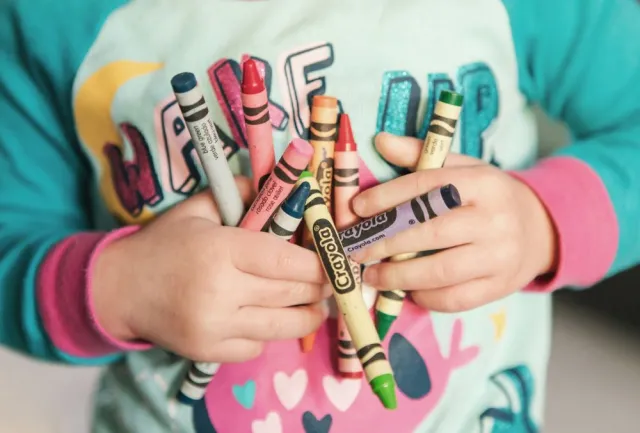Talking to Kids & Teens About Cancer
Table of Contents
Maria: What Do I Tell the Kids?
Maria discusses her experience with talking to her children about her cancer diagnosis.
Starting the Conversation
If you or someone you know has been diagnosed with cancer, one of your first thoughts may be: How do I tell the children? Adults often fear telling children that cancer has come into the family. We all want to keep the children we love happy. It's hard to think of talking to them about something that will make them — and us — upset.
The thing is, children are very sensitive to what is happening around them. They can sense when something is wrong and the adults they love aren’t talking to them about it. Children also have very active imaginations. Not telling a child what the family is facing leaves them to imagine situations that are often worse than things really are. Young children may also believe that something they have done has caused the problem. Not being able to talk about their concerns can leave them feeling isolated, alone, sad, or worried. Although telling your children about a cancer diagnosis is hard, it is important and necessary.
Here are some helpful tips for talking to kids and teens about cancer:
- Be honest in answering their questions.
- Use simple language that your child can understand.
- Don’t be afraid to use the word cancer.
- Let children know it is OK to feel sad, mad, scared or confused.
- Let them know about expected changes in their routines.
- Let them know about any expected change in your appearance or behavior (hair loss, fatigue).
- Don’t force information. Answer questions as they come up.
- It is OK to share your feelings with your children.
- It is OK to let your children see you cry.
- Give your children small, age-appropriate jobs so that they feel involved.

Looking for More Tips?
Discover creative ideas, activities & resources to help your children cope with your cancer diagnosis.
Support for Kids & Teens
Cancer can affect a family in many ways. There are changes in day-to-day routines and more responsibilities to be managed. Feelings of anger, sadness, helplessness, regret, and fear may touch different family members at different times, making life unpredictable for everyone.
Every family member’s experience is unique and different, often making it hard to know how to provide support to one another. The Cancer Support Community offers a variety of programs and services for families, teens, and kids affected by cancer.
Any emotion is ok. Don't try to be perfect. Fail a little, prevail a little. Get through it best you can.
Would you like a print copy of these educational materials?
We can mail our Frankly Speaking About Cancer pieces to you. Shipping is free for up to 20 pounds.